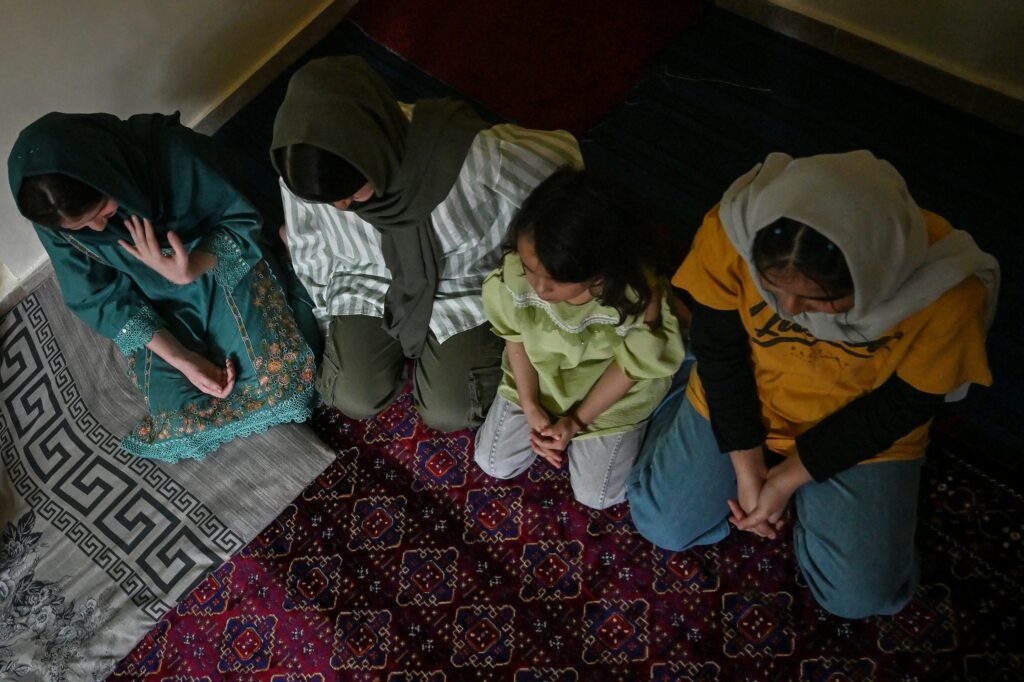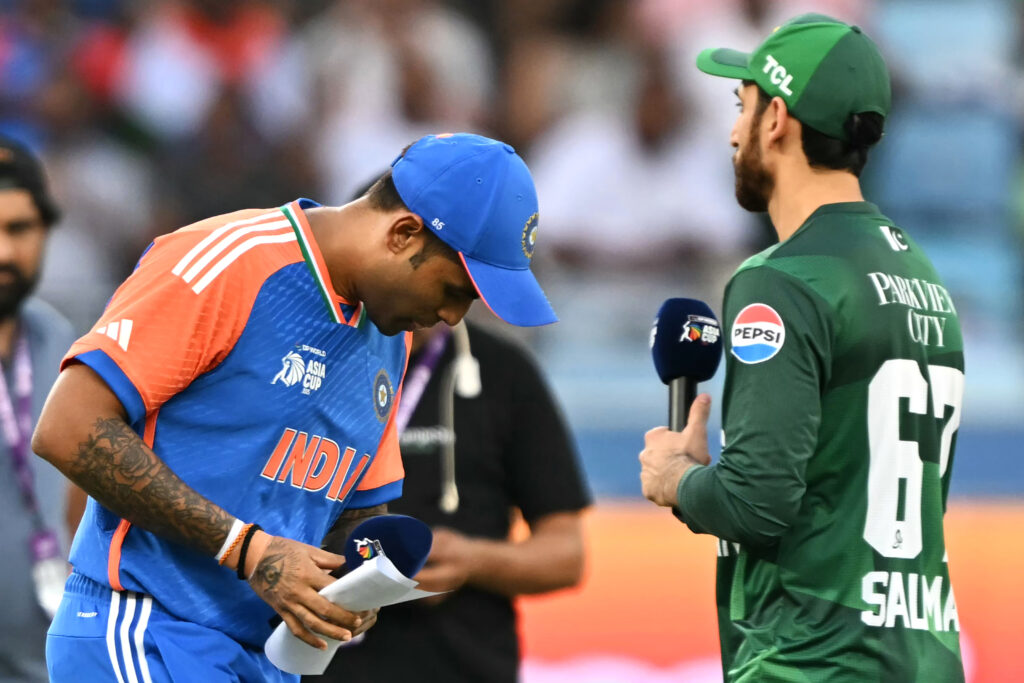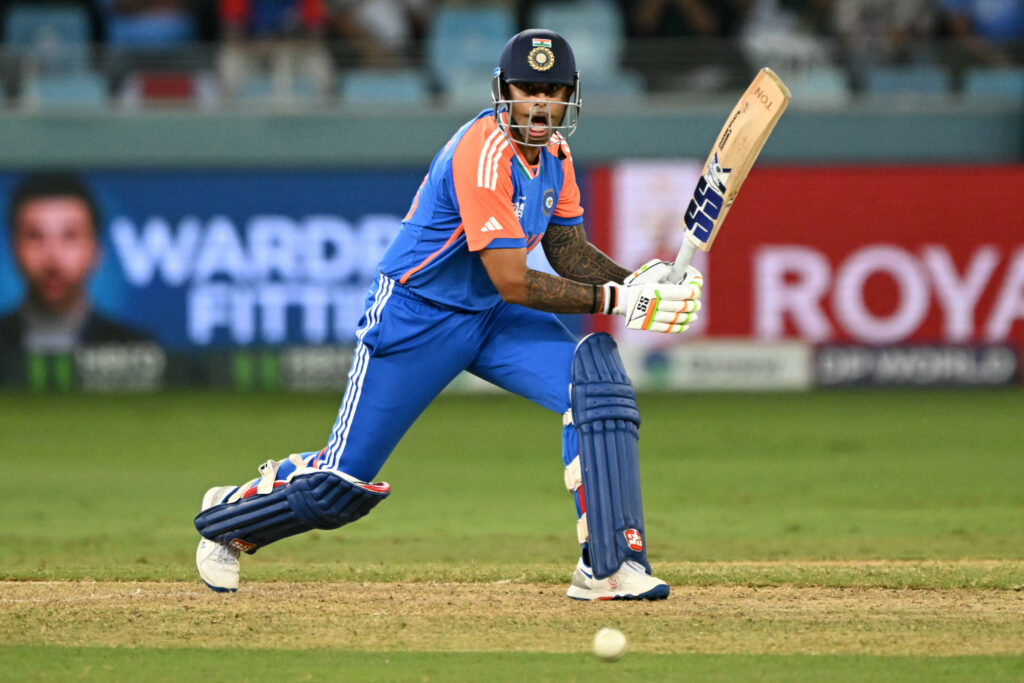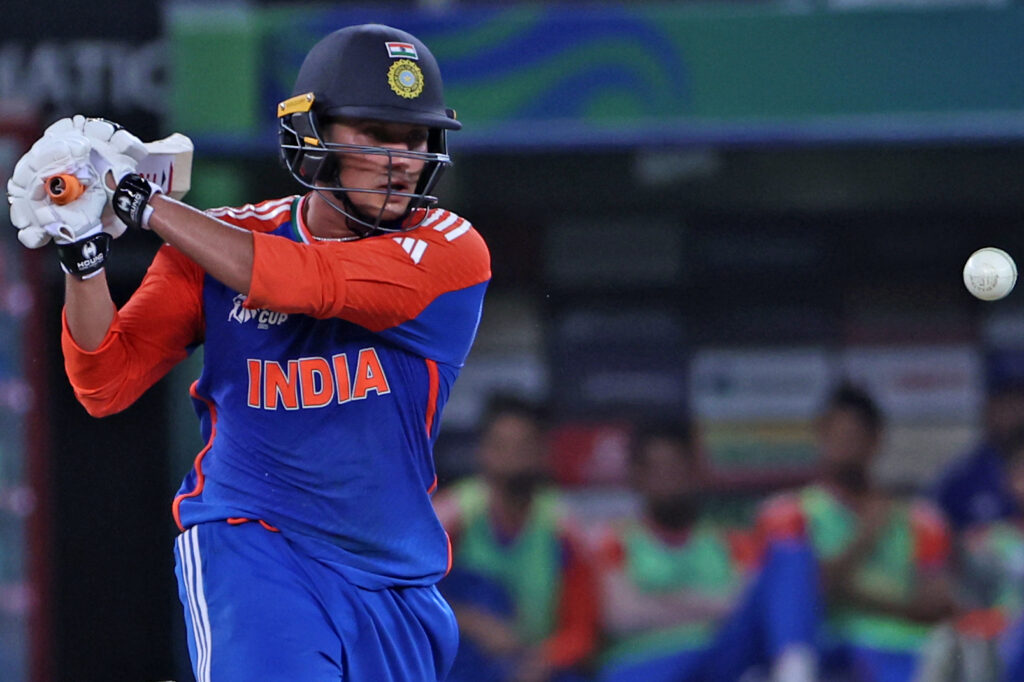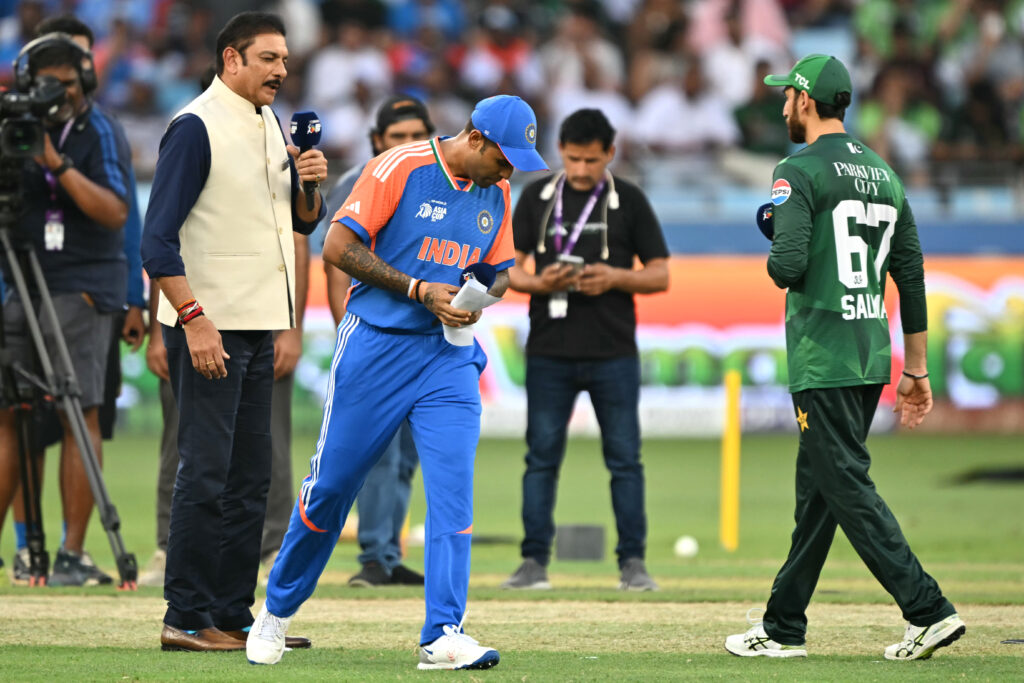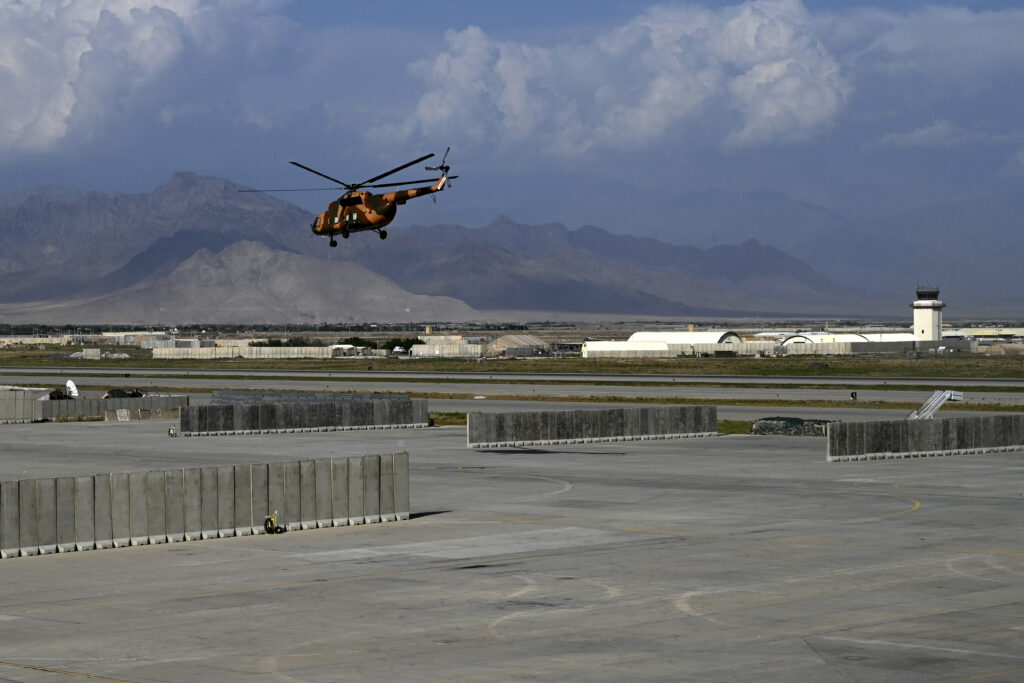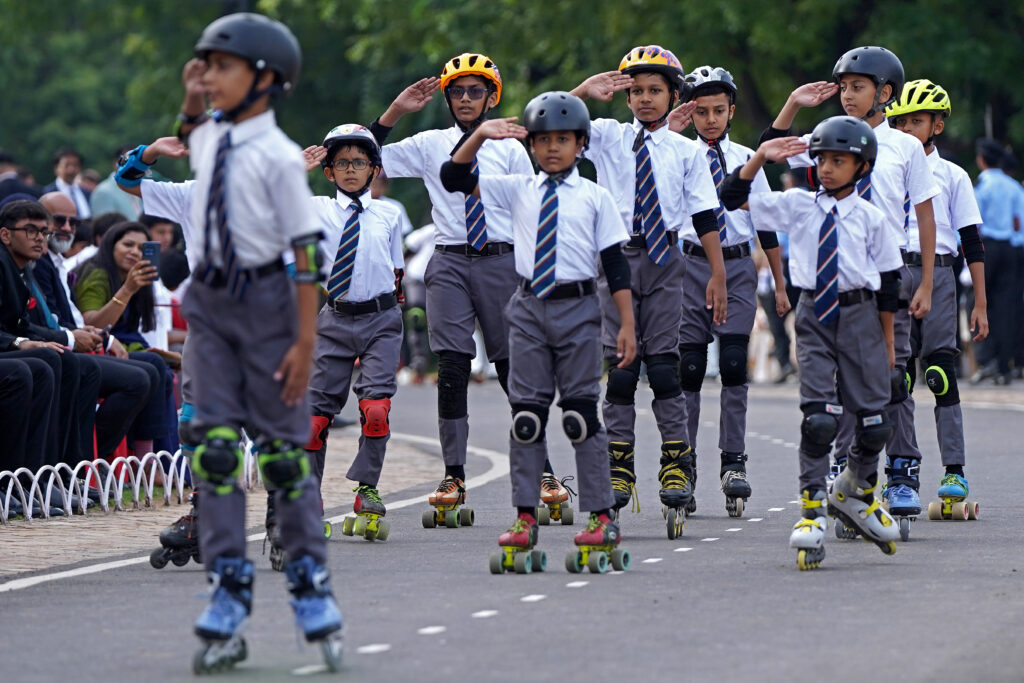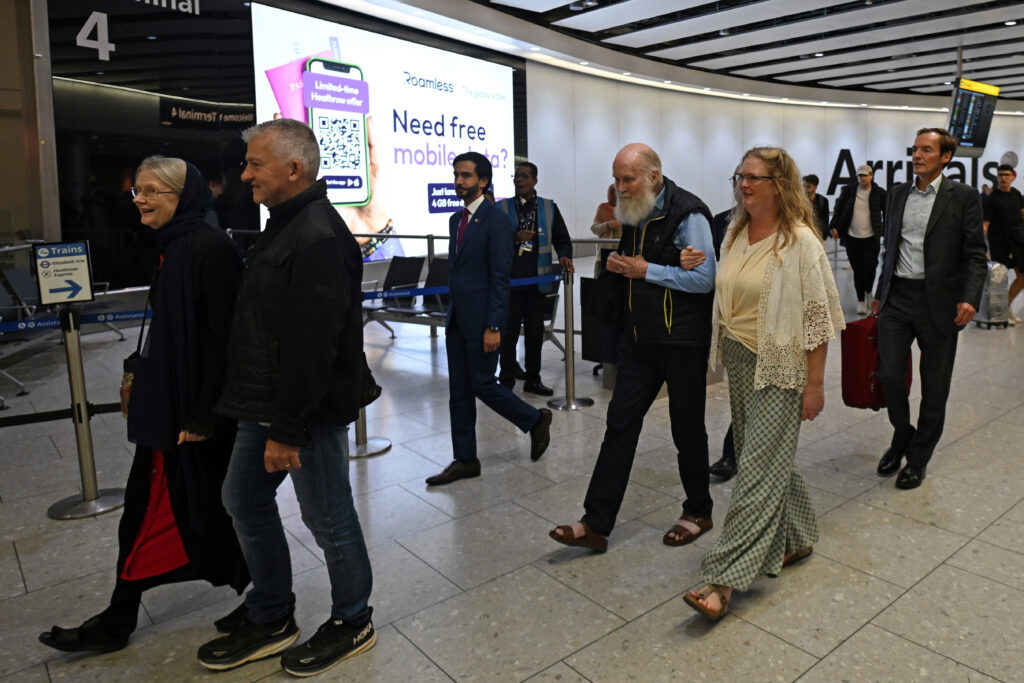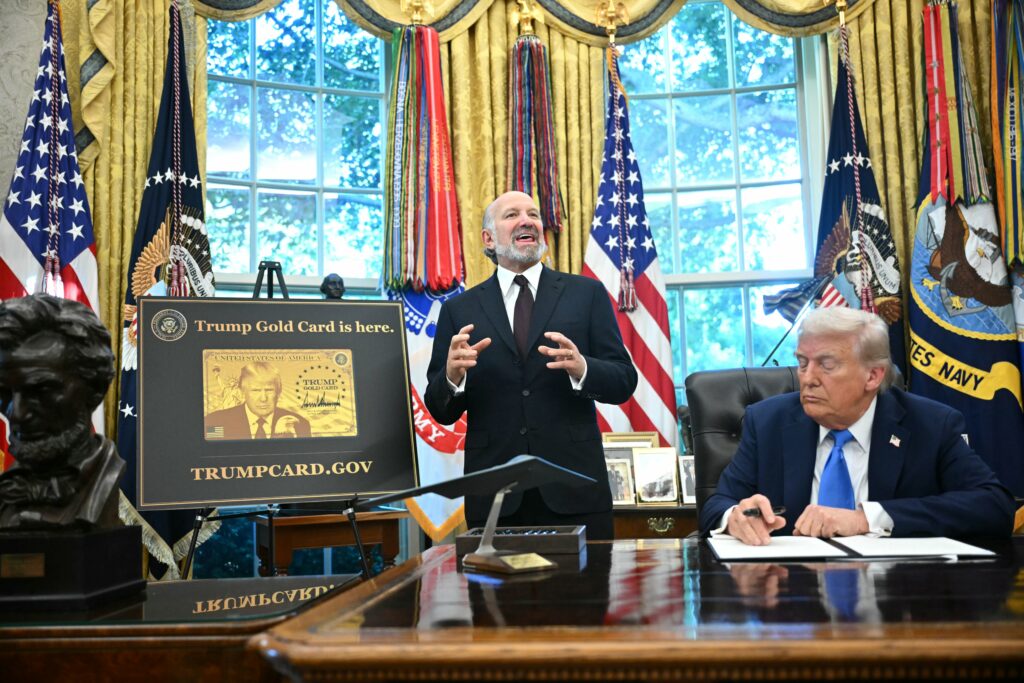Hopes of Western refuge sink for Afghans in Pakistan
In their Pakistan safehouse, Shayma and her family try to keep their voices low so their neighbours don’t overhear their Afghan mother tongue.But she can belt out Bob Dylan’s “The Times They Are a-Changin'” any time she likes, and no-one would guess it comes from a 15-year-old refugee in hiding.”In the kitchen, the sound is very good,” she told AFP alongside her sister and fellow young bandmates.By now, Shayma should have been testing the acoustics of her new home in New York.But before her family’s scheduled February flight, US President Donald Trump indefinitely suspended refugee admissions, stranding around 15,000 Afghans already prepared to fly out from Islamabad.Thousands more are waiting in the city for relocation to other Western nations, but shifting global sentiment towards refugees has diminished their chances and put them at risk of a renewed deportation drive by Pakistan, where they have long exhausted their welcome.For girls and women, the prospect is particularly devastating: a return to the only country in the world that has banned them from most education and jobs.”We will do whatever it takes to hide ourselves,” said Shayma’s 19-year-old bandmate, Zahra.”For girls like us, there is no future in Afghanistan.”-‘Not a transit camp’ -After the Taliban’s return to power in 2021, tens of thousands of Afghans travelled to neighbouring Pakistan to register refugee and asylum applications with Western embassies, often on the advice of officials.Many had worked for the US-led NATO forces or Western NGOs, while others were activists, musicians or journalists. Four years on, thousands are still waiting, mostly in the capital Islamabad or its outskirts, desperately hoping that one of the embassies will budge and offer them safe haven.Hundreds have been arrested and deported in recent weeks, and AFP gave interviewees pseudonyms for their protection.”This is not an indefinite transit camp,” a Pakistan government official told AFP on condition of anonymity. He said Pakistan would allow Afghans with pending cases to stay if Western nations assured the government that they would resettle them.”Multiple deadlines were agreed but they were not honoured,” he added. – Miraculous music -The teenaged musicians learned to play guitar back in Kabul at a nonprofit music school for girls, who are now dispersed across Afghanistan, Pakistan and the United States.”We want to use our music for those who don’t have a voice, especially for the girls and women of Afghanistan,” said Zahra, one of the four in Pakistan.The school opened under Kabul’s previous US-backed government, when foreign-funded initiatives proliferated alongside NATO troops.Overcoming social taboos, Shayma and her sister Laylama attended the after-school lessons run by an American former arena rocker, who helped kids get off the streets and into guitar practice.One of 10 siblings, Laylama sold sunflower seeds to help support the family. She had cherished a stringless plastic guitar, until she encountered the real thing.”Music really changed our life,” she said.But fearing retribution from the Taliban government, which considers Western music anti-Islamic, Laylama’s father burned her guitar.”I cried all night,” the 16-year-old told AFP.- ‘Drastic measures’ -Since they were smuggled into Pakistan in April 2022 to apply for refugee status with the United States, Shayma and her bandmates have had to move four times, driven deeper into hiding.At the start of Pakistan’s crackdown in 2023, the US embassy provided the government with a list of Afghans in its pipeline that should be spared, according to a former staffer with the State Department’s Coordinator for Afghan Relocation Efforts. That office, and the protections it offered, have been dismantled by the Trump administration.”Leaving these refugees in limbo is not just arbitrary, it’s cruel,” said Jessica Bradley Rushing of the advocacy coalition #AfghanEvac.As Pakistan expands its “Illegal Foreigners Repatriation Plan” to include refugees, it may be seeking leverage over foreign partners in its counter-terrorism campaign, said International Crisis Group analyst Ibraheem Bahiss.”These are really drastic measures not only to put pressure on the Taliban government but also to show the international community they are very serious,” he told AFP. For the girls, every day brings the fear that a knock on the door will send them back.Outside, mosque loudspeakers in Afghan neighbourhoods order migrants to leave, while refugees are picked up from their homes or workplaces, or off the street.To stem their anxiety, the girls maintain rigorous daily routines, starting with the dawn call to prayer.They rehearse a Farsi version of Coldplay’s “Arabesque” and a riff on Imagine Dragons’ “Believer”.They also practice English through YouTube videos and reading “Frankenstein”.”It’s not normal to always stay in the house, especially for children. They should be in nature,” Zahra said.”But going back to Afghanistan? It’s a horrible idea.”
